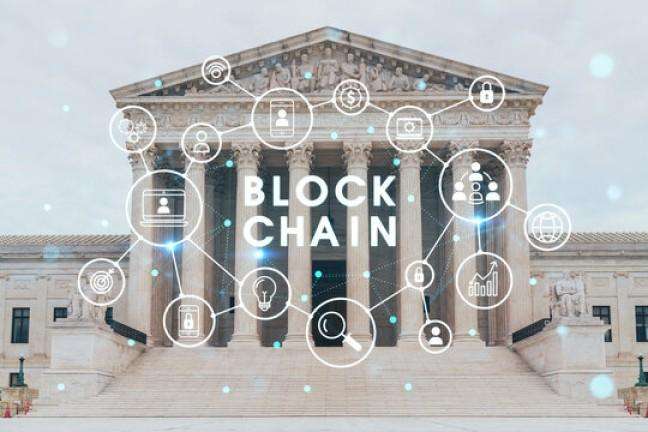In the ever-evolving world of blockchain technology, Altair Blockchain stands as a prominent figure, carving its niche as a platform focused on providing decentralized solutions. With blockchain technology rapidly transforming industries, from finance to supply chain management, I’ve decided to dive deep into Altair Blockchain to understand its features, benefits, challenges, and potential impact on the market.
Before I explore the nuances of Altair Blockchain, it’s essential to understand why blockchain has garnered such widespread attention. At its core, blockchain technology provides a secure, decentralized way of recording transactions and storing data. The beauty of blockchain lies in its distributed nature, ensuring that no single entity controls the system, thereby offering greater transparency, security, and autonomy for users. Altair Blockchain, like other blockchain platforms, offers these features, but with a distinct approach that sets it apart in the crowded blockchain space.
Table of Contents
The Basics of Altair Blockchain
Altair Blockchain is a decentralized, scalable, and energy-efficient blockchain solution designed for applications that require secure data transactions. Its architecture is built to support decentralized finance (DeFi), non-fungible tokens (NFTs), and other emerging blockchain applications. The platform uses a unique consensus mechanism, which contributes to its scalability and efficiency. Altair Blockchain aims to overcome some of the limitations faced by older blockchain platforms, such as high transaction fees and slow processing times.
One of the key features of Altair Blockchain is its ability to handle a large volume of transactions while maintaining a high degree of decentralization. This feature is crucial for applications in finance, healthcare, and other sectors that require both speed and security.
Consensus Mechanism: A Key Pillar
When discussing any blockchain platform, it’s vital to understand the consensus mechanism it employs. The consensus mechanism ensures that all participants in the network agree on the validity of transactions. Altair Blockchain uses a hybrid consensus model, combining Proof of Stake (PoS) with Proof of Authority (PoA). This hybrid approach allows for faster transaction processing while maintaining the integrity and security of the network.
- Proof of Stake (PoS): In a PoS system, validators (or “stakers”) lock up a certain amount of cryptocurrency as collateral to participate in transaction verification. The more tokens a participant locks up, the higher the chances they have of being selected as a validator. This system incentivizes participants to act honestly, as they stand to lose their stake if they validate fraudulent transactions.
- Proof of Authority (PoA): In PoA, validators are selected based on their identity and reputation rather than the amount of cryptocurrency they hold. This system tends to offer faster transaction speeds since it reduces the need for extensive computational resources.
The hybrid PoS/PoA model used by Altair Blockchain allows for a balanced approach between decentralization and efficiency. Validators are incentivized to act honestly through PoS, while PoA ensures that the system remains fast and responsive.
Comparison of Altair Blockchain with Other Leading Blockchains
To truly understand the value proposition of Altair Blockchain, it helps to compare it with some of the leading blockchain platforms. Let’s consider Ethereum, one of the most widely used blockchain platforms, and Solana, known for its speed and low transaction costs.
| Feature | Altair Blockchain | Ethereum | Solana |
|---|---|---|---|
| Consensus Mechanism | Hybrid PoS/PoA | Proof of Stake | Proof of History + PoS |
| Transaction Speed | High | Moderate to High | Very High |
| Transaction Fees | Low | High | Low |
| Energy Efficiency | High | Moderate | High |
| Smart Contracts Support | Yes | Yes | Yes |
| Ecosystem Support | Growing | Extensive | Growing |
From the table above, it’s clear that Altair Blockchain offers a compelling alternative to Ethereum and Solana, especially for those looking for a balance between speed, cost-efficiency, and energy consumption.
Use Cases of Altair Blockchain
The potential use cases for Altair Blockchain are vast, thanks to its scalable and energy-efficient design. Some of the most promising applications include:
- Decentralized Finance (DeFi): Altair Blockchain’s fast transaction speeds and low fees make it an ideal candidate for DeFi applications. These applications, which aim to replace traditional financial services with decentralized alternatives, require a blockchain that can handle a large volume of transactions at low cost.
- Non-Fungible Tokens (NFTs): The rise of NFTs has brought a new wave of interest in blockchain technology. Altair Blockchain supports NFT platforms by providing a scalable solution for minting and trading digital assets.
- Supply Chain Management: Blockchain technology is already making strides in supply chain management by offering a transparent and secure way of tracking goods from origin to destination. Altair Blockchain’s scalability and security make it an excellent choice for building supply chain solutions.
- Healthcare Data Management: With its high security and transparency, Altair Blockchain can also be applied in the healthcare industry to manage patient data. The platform’s ability to ensure data integrity while maintaining privacy can revolutionize the way healthcare records are managed and shared.
Security and Privacy
Security and privacy are two of the most critical aspects of any blockchain network, especially one that handles sensitive data. Altair Blockchain addresses these concerns through several mechanisms:
- Data Encryption: All data on the network is encrypted using advanced cryptographic techniques, ensuring that only authorized parties can access sensitive information.
- Decentralization: By decentralizing control of the network, Altair Blockchain ensures that no single entity can manipulate the system. This makes it more resistant to hacking and fraud.
- Privacy Features: Altair Blockchain includes features that enable users to control their privacy settings. This is crucial for applications in healthcare and finance, where privacy is paramount.
Challenges and Limitations
While Altair Blockchain offers several advantages, it is not without its challenges. One of the main hurdles for the platform is its relative youth in the blockchain space. Many users and developers are still more familiar with established platforms like Ethereum, which can make adoption more difficult.
Another challenge is scalability. While Altair Blockchain is designed to be scalable, the platform will need to continue improving its infrastructure to handle a growing number of users and transactions. As more users adopt the platform, the demand for faster transaction speeds and lower fees will increase.
Lastly, competition in the blockchain space is fierce. New platforms are emerging constantly, and it remains to be seen whether Altair Blockchain can differentiate itself enough to maintain long-term relevance.
The Future of Altair Blockchain
Looking forward, the future of Altair Blockchain appears promising. The platform’s focus on scalability, energy efficiency, and decentralization positions it well to meet the demands of the rapidly growing blockchain industry. However, continued development and community support will be essential for its success.
The growing interest in DeFi and NFTs, as well as increasing demand for transparent supply chain solutions, presents significant opportunities for Altair Blockchain to expand its user base and use cases. As the platform matures, I expect to see greater adoption and increased integration with existing technologies.
Conclusion
In conclusion, Altair Blockchain offers a unique and promising solution in the blockchain space. With its hybrid consensus mechanism, scalable design, and focus on energy efficiency, it provides a viable alternative to more established platforms like Ethereum and Solana. While challenges remain, particularly in terms of adoption and scalability, the platform’s potential is clear. If you’re looking for a decentralized, secure, and cost-efficient blockchain solution, Altair Blockchain is definitely one to watch as the technology continues to evolve.





